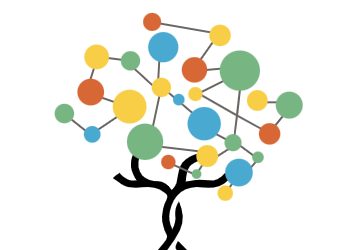If it's Spring, then it must be time for driver training! Many Departments of Motor Vehicles are poorly equipped to meet the needs of the neurodiverse community and it may not be obvious how to access an audio version of the drivers manual (our state...
PTSD and Dyslexia
"This study identified that emotional trauma took place in all participants, and this resulted in many having Post-Traumatic Stress Disorder manifestations as a result of returning to school for their own children. Participants still noted anger and resentment as...
Henry Winkler: Find the Very Best for You
“There is an emotional component to the learning challenged,” says Winkler, whose parents called him “dumb dog” for his failures. “You don’t have a sense of self because you’re not keeping up with everybody... you feel terrible about yourself.” — Henry Winkler ...
Pausing while Writing [Premium]
There are many reasons why students may pause while writing, but more if students are also dyslexic. Those who remember their thoughts and experiences as nonverbal sensations will need extra steps to put their knowledge and understanding into words. Dysgraphic students will have difficulty writing and those with small working memories, may overload with all the work required for getting ideas in their head down on the page. A BIRD’S EYE VIEW OF THE WRITING PROCESS When Brock and I were testing students, our battery for comprehensive testing included the timed writing of the lower case alphabet, sentence and symbol copy (the latter from the Coding subtests of the WISC), sentence combining, spelling test, descriptive writing of a picture, then 10 minute writing […]
Novelist Natasha Solomons
"Books are my refuge, but I had to overcome dyslexia to write the stories I was bursting to tell." — Natasha Solomons Natasha is a lifelong storyteller, but it took a lot of persistence and resilience to get those stories out. As a child, she listened to...
Recovering from Pandemic Loss
Numbers are starting to trickle in from February testing and the good news is that things are beginning to recover, but younger grades are behind more than older children. The numbers below are all students, without dyslexic students studied separately, but if...
Creativity and Dyslexia
"Individuals with dyslexia significantly outperformed controls in creativity scores in adult samples..." - Majeed et al., 2021 In the past year, there have been two more studies to add to the creativity research literature on dyslexia. The first, a...
Complementary Cognition
" ...our current education and work environments are often not designed to make the most of dyslexia associated thinking, we hope this research provides a starting point for further exploration of the economic, cultural and social benefits the whole of society can...
From High School Drop-Out to VP of Engineering [Premium]
There are some people who are so insightful into their cognitive processes that talking to them is pure gold. Gary MacGregor is one of those people – he’s a VP of an electronic device company and recent PhD recipient from the University of Texas at Austin. He has a remarkable story and has been very generous in sharing what he has learned. Gary: “I’m a high school dropout. My parents were high school dropouts. I’m the first male in the family to go to college.” When Gary dropped out of school, he took a job working an oil refinery – a lucrative career for a person without a high school diploma. While he was working 12 hour shifts 84 hours a week, he would exercise […]
How Not to Learn to Read aka Death by Worksheets [Premium]
Daniel Shanahan recently recounted his discussion with a principal about his school curriculum. His students were under-performing and he assured Daniel that students were receiving plenty of instruction in phonics and fluency. When he looked at the teacher’s curricular plan, it looked as if plenty of reading instruction was given every day, but his impression changed once he began visiting classes. Daniel: “Much of the instructional time wasn’t used for instruction at all. The teachers spent a big chunk of time on “sustained silent reading” and they read to the children quite a bit, too. All the classrooms had multiple reading groups. That meant that the boys and girls did a lot of worksheets to keep them quiet while the others were reading with […]
Strength-based Thinking and Communication through Metaphor [Premium]
“Since dyslexics are visual learners and thinkers, I make sure to integrate that into how I work throughout the day. I always approach architecture decisions via white-boarding. I use metaphors when I explain things to other people or when I try to reason about the problem space in my head…” – Josh Brunner, from Embracing Dyslexia as a Software Engineer An interesting thing happened when researchers (sorry free abstract only) set out to study figurative language in dyslexic and non-dyslexic people. Dyslexia is often referred to as a “language learning disability” and in the usually deficit-focused literature, there have been plenty of studies that might have suggested figurative language could be problematic – but Kasirer and Mashal also were aware of the creativity literature […]
Literature for Dyslexics [Premium]
“What can students learn from literature they cannot learn elsewhere? Why should they bother?” — Gary Morson At the same time that Brock and I have been reviewing the research literature for our update for Dyslexic Advantage, I also came across an article by Russian Literature professor Gary Morson on Why College Kids are Avoiding the Study of Literature. As it turns out, some of the problems and solutions he identifies has direct implications for dyslexic readers. THE CHALLENGES The challenges facing dyslexic readers and complex literature are many – there is so much of it, for instance, the sheer quantity may be impossible for younger readers even if they are able to listen-read through audiobooks; great literature may also have complex grammar […]




![Pausing while Writing [Premium]](https://www.dyslexicadvantage.org/wp-content/uploads/2022/06/Pausing-while-writing-e1655685633950-400x250.png)




![From High School Drop-Out to VP of Engineering [Premium]](https://www.dyslexicadvantage.org/wp-content/uploads/2022/04/From-High-School-Dropout-April-2022-Premium-3-400x250.png)
![How Not to Learn to Read aka Death by Worksheets [Premium]](https://www.dyslexicadvantage.org/wp-content/uploads/2022/03/kawin-harasai-2Ev2aUB8NJI-unsplash-400x250.jpg)
![Strength-based Thinking and Communication through Metaphor [Premium]](https://www.dyslexicadvantage.org/wp-content/uploads/2022/02/Strength-based-Thinking-and-Communication-through-Metaphor-e1644394632260-400x250.jpg)
![Literature for Dyslexics [Premium]](https://www.dyslexicadvantage.org/wp-content/uploads/2022/02/Literature-for-Dylexics-400x250.jpg)













